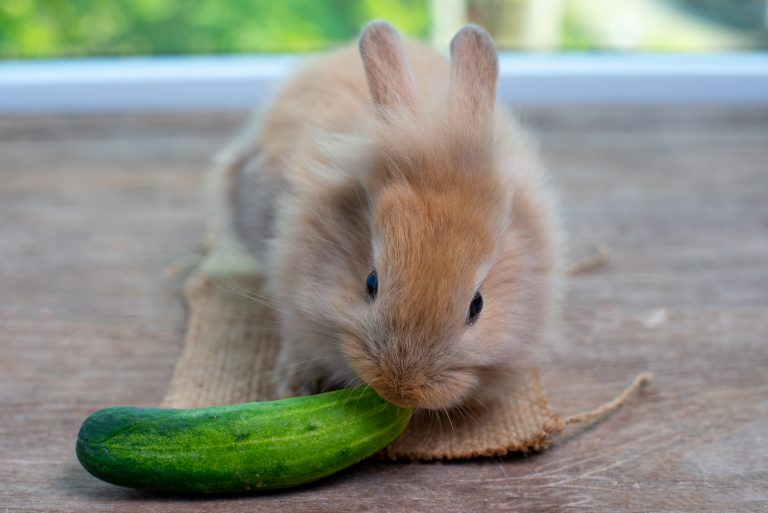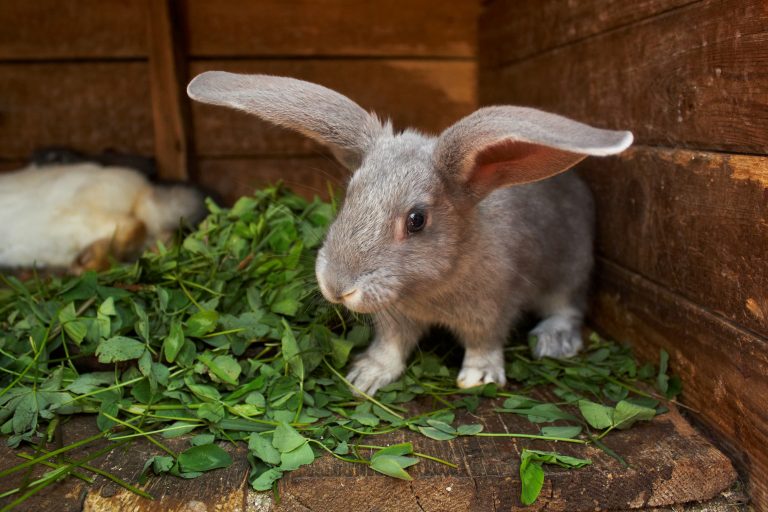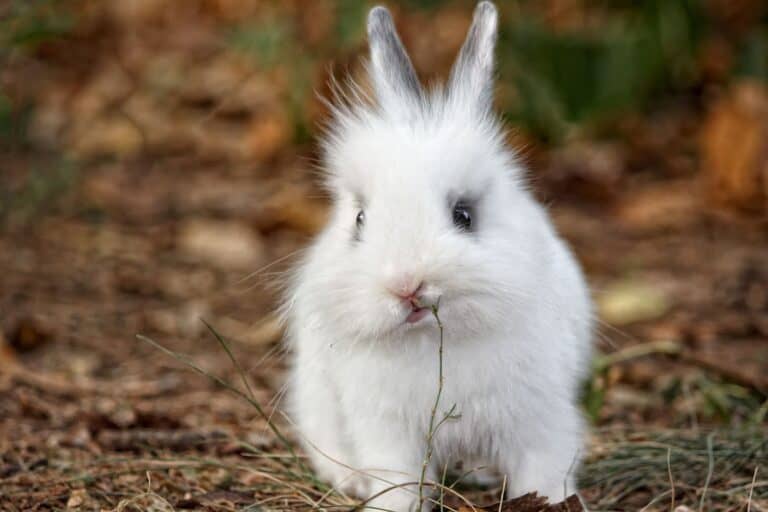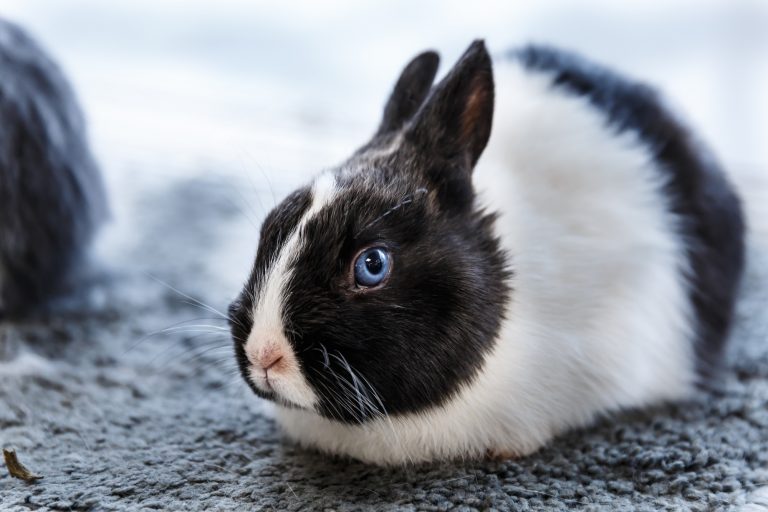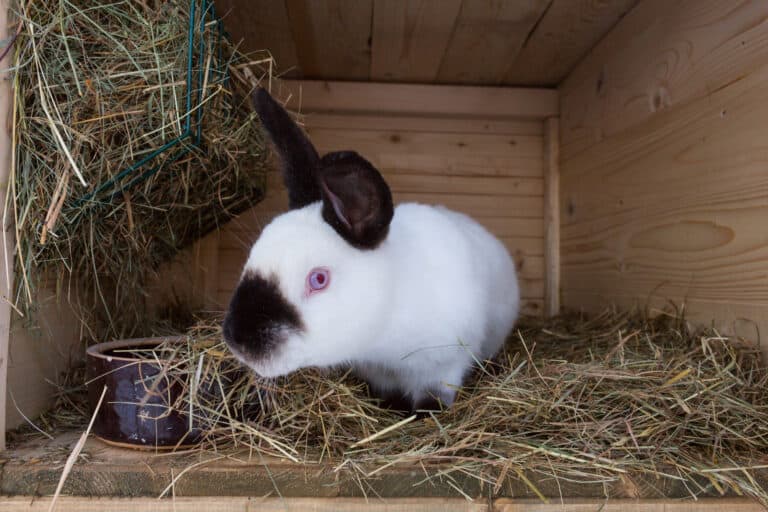Can Rabbits Eat Grapes?

Ah, grapes! Who doesn’t enjoy popping one or two into their mouths now and then? This sweet and juicy fruit tastes great whether eaten raw or turned into jellies and wine. It makes a great snack and a healthy one, too. But can rabbits eat grapes the way their humans do? Let’s see what this yummy fruit contains and if it’s safe for your bunny.
The Nutritional Content of Grapes
We know that grapes offer plenty of vitamins, minerals, and other health-boosting nutrients. A cup of this fruit contains the following:
- Vitamins A, C, and B6
- Potassium
- Iron
- Magnesium
- Manganese
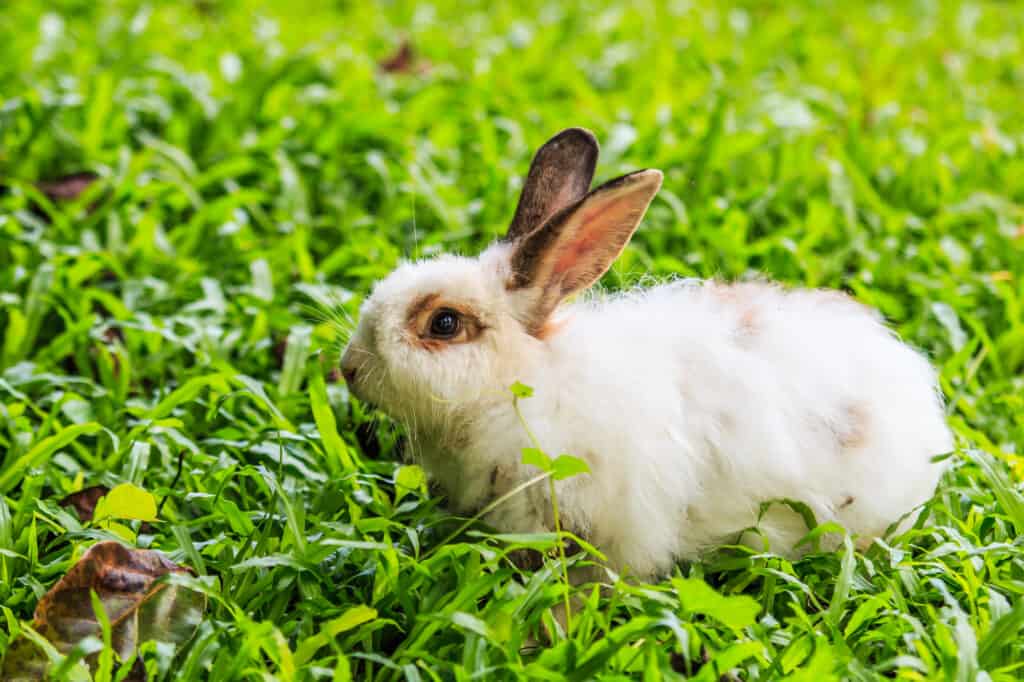
Do Rabbits Like Them?
Buns are suckers for anything sweet. Because grapes are some of the sweetest fruits around, you can bet that most rabbits like them. They may even do a binky when they see you approaching with a serving. There are exceptions, of course. But buns will usually gobble one grape after another if you let them.
Can Rabbits Eat Grapes?
There’s nothing in these juicy spheres that can harm rabbits. However, it still won’t be a good idea to let your fur baby eat as much as he wants. A rabbit’s diet should consist primarily of hay, and sweet fruits, like grapes, should be given only as occasional treats. So, yes, rabbits can eat grapes, but no, they can’t eat to their heart’s content.
Health Benefits
Grapes offer plenty of nutritional benefits to rabbits, which can help turn your fur baby into one healthy and happy bunny.
Help with Constipation
Rabbits need plenty of hay to keep their digestive system in good working order. However, sometimes something goes wrong, and your pet finds it hard to do number two. Grapes have high water content and some fiber, which might help get your pet’s digestion going again.
Loaded with Antioxidants
These yummy spheres are chock-full of antioxidants, particularly the red varieties. Aside from preventing inflammation, antioxidants also boost the immune system. Abundant in compounds called polyphenols, grapes can help prevent cancer in rabbits.
Heart-friendly
Resveratrol, the polyphenols that aid in cancer prevention, also gives your bun’s heart a boost. Its lipid-reducing action and anti-inflammatory properties can help lower the risks for cardiovascular diseases in rabbits.
Maintain Good Eyesight
A serving of grapes once or twice a week provides additional support to your pet’s eyes. The antioxidants found in the fruit, namely lutein and zeaxanthin, can enhance eye health.

The Risks of Too Much
Rabbits have mastered the art of begging. It’s so hard to resist those large, soulful eyes as they plead for more of that tasty treat you’ve just given them. But resist, you must. Feeding your bun more than the recommended serving can have some adverse results.
Health Issues
Grapes are like candy to rabbits, and consuming too much sugary stuff brings health risks. These risks include diabetes, obesity, digestive problems, and even the dreaded GI stasis. The bacteria in your bun’s gut will quickly digest the sugar in grapes, leading to an accumulation of gas in your pet’s stomach. It can also alter the pH level in the digestive tract, making your bun prone to bloating, diarrhea, and GI stasis.
Poor Appetite
Hay should comprise the bulk of a rabbit’s diet. But buns who get used to the sweetness of grapes might prefer the yummy spheres to hay’s bland taste. This can spell trouble as hay helps push the food down a rabbit’s digestive tract. Nibbling on hay also prevents his teeth from getting too long. In extreme cases, a rabbit who has gotten used to sweet treats like grapes may stop eating more healthy options.
Pesticides
Rabbits have sensitive digestions. Eating grapes or any other food with traces of pesticides might upset their stomach. They can develop diarrhea as a result. Some pesticides and other chemicals that have come into contact with the fruit can harm your pet, especially if ingested in large amounts.
How Many Grapes Can Rabbits Eat?
We’re not saying you should refrain from letting your pet enjoy this luscious fruit. You can give grapes to your rabbits but limit the portions. All fruits, not just grapes, should be given only as a treat.
We recommend a serving of 1-2 ounces of grapes per 6 pounds of rabbit weight. That comes to about 1-2 grapes but bigger buns can have a bit more. But don’t give the treat every day. Once or twice a week is just about right (just like with watermelon – small servings are best). That may not be enough to satisfy your pet’s cravings for sweets, so be ready to exercise some tough love and stop giving him more than the ideal serving portion.

How to Give Them to Your Rabbit
Even though rabbits can eat grapes, you’ll need to exercise caution when feeding them to your fur baby. Here are some tips for your guidance.
- Wash the grapes thoroughly to remove dirt, pesticides, or other chemicals. We recommend soaking the grapes in water for several minutes before you slice and offer the fruit to your pet.
- Give your rabbit only a tiny serving the first time you offer the fruit. Check for signs of illness or discomfort for around 24 hours. If you don’t observe any adverse reactions, you can give a little more grape the next time you feed your bun the treat.
- As much as possible, buy organically-grown grapes to minimize the risks of toxin ingestion.
- Remove the seeds. They’re not toxic to rabbits but eating too much can lead to kidney trouble.
What about the Grape Leaves?
The leaves are safe for rabbits. Still, you need to watch the quantity you feed your pet, especially when you offer the leaves for the first time. As with other foods, give only a tiny portion and observe your bun’s reaction.
Can Baby Rabbits Eat Grapes?
Rabbits have sensitive digestions, more so when they’re very young. In general, avoid giving grapes to buns before they’re 7 months old.
Grapes contain nutrients that help boost your bun’s health. However, feeding too much won’t be good for him. Limit the portions you serve so your fur baby can enjoy the luscious fruit without experiencing any ill effects.
We hope you enjoyed this post! If you did, will you give it a share or two 🙂 Thank you! ~from Every Bunny Welcome



